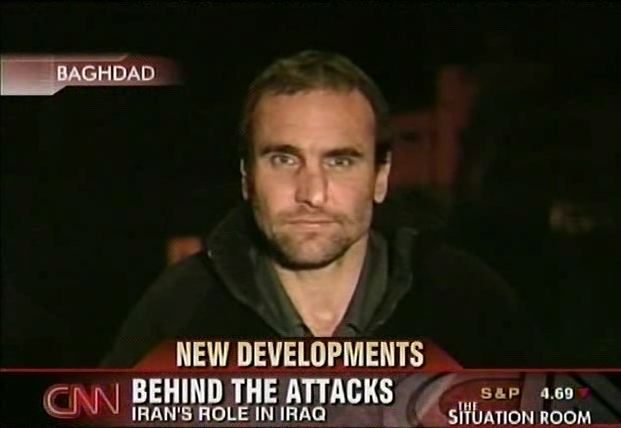TSR: "I know that this is not going to happen."

Click photo to play
Length: 3:29
WOLF BLITZER: Just a few month after it tested a nuclear weapon, has North Korea finally agreed to give up its nuclear weapons program?
There's new word of a deal at high level talks underway in China.
CNN's Arwa Damon, Barbara Starr, Michael Ware -- they're all standing by on the situation in Iraq.
But let's go to China.
CNN's John Vause joining us now live in Beijing. So here's the question, John, is there really a deal on nukes with North Korea?
Meanwhile, the U.S. military, as Barbara noted, laid out its evidence against Iran in convincing but careful fashion.
And the question is what took so long?
And joining us now from Baghdad, our correspondent, Michael Ware -- Michael, why now? Why is the U.S. military briefing reporters about this Iranian connection to the war in Iraq right now, since you yourself have reported it's been going on for at least a year or two?
MICHAEL WARE, CNN CORRESPONDENT: If you listen to the military, they say it's for two reasons.
One, in the last six to eight months of 2006, there was a massive upsurge in the number of attacks and casualties among coalition troops as a result of these explosive devices coming from Iran's Revolutionary Guard Corps.
The other reason, they say, is that it's taken them time to develop the kind of evidence that the public expects, that will persuade the public. It then took even longer to declassify this information, protecting sources and methods. So that's the military's story.
But none of this is happening in a vacuum. You see that there's a number of levels of competition between Washington and Tehran. One is in the ether, the environment of the U.N. Security Council, where they're wrangling over Iran's nuclear program.
Here on the ground, it's being fought in blood and armor with bullets and bombs. This is very much a real rivalry.
BLITZER: And some would suggest, Michael, it sort of sets the stage, potentially, for another war, this one between the United States and Iran.
Are there any indications you're seeing that that, potentially, is in the works?
WARE: Actually, Wolf, I see quite the opposite. Obviously, I'm reading a lot of speculation about that, that what the intention behind this briefing and the leaks of other information regarding Iran is really softening the ground in preparation for the next war or the last war of President Bush's administration.
Quite frankly, Wolf, I know that this is not going to happen.
Why?
Because -- not just because the American public no longer has the stomach for it. Nor is there political will for it in Washington. Simply, the American war machine cannot cope with it. It's already straining. The men and machines are at breaking point fighting the wars that are currently underway.
BLITZER: Michael Ware reporting for us from Baghdad.
Michael, thanks.
WARE: Thank you, Wolf.
BLITZER: And let's go to Jack Cafferty.
He's in New York with us for The Cafferty File...
JACK CAFFERTY, CNN CORRESPONDENT: Comforting words from Michael Ware.
BLITZER: Yes.
CAFFERTY: I feel better. He says it's not going to happen.
BLITZER: He's a straight shooter, though.
CAFFERTY: Oh, absolutely.
BLITZER: He tells it like he sees it. He's -- he does what a real reporter should do, not just, you know, be a stenographer, but actually give us a sense of what he knows.
CAFFERTY: I'd be more inclined to believe anything he said as opposed to almost anyone else in this country, particularly in the administration. I mean he's -- he's -- he has sources in the country, he does his homework, he travels around over there. He knows what he's talking about.
